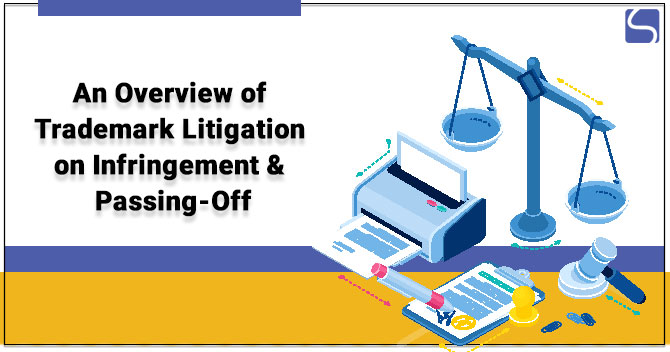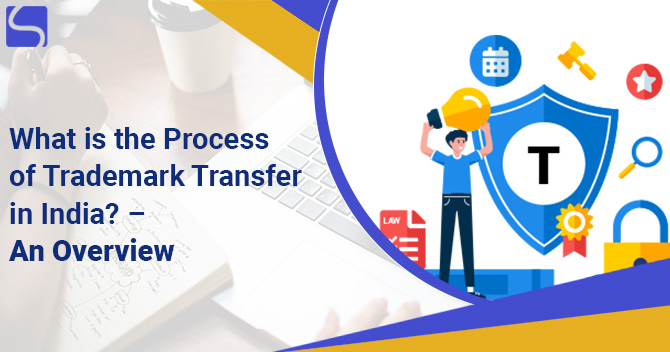An Overview of Trademark Litigation on Infringement & Passing-Off

Karan Singh | Updated: Jun 02, 2021 | Category: Trademark
The process of Trademark Litigation gets commenced with filing a lawsuit concerning Trademark Infringement at the respective state, international court of law, or provincial. However, all the fill assurance concerning the supposed infringement is recommended through investigations and evidence. In general, the Trademark Litigation on Infringement is filed by the registered owner of a Trademark, looking for an inclusive and quick ban on infringing activities & recovery of reimbursement.
Table of Contents
Does Trademark Integrate Dissimilarities in the Market?
The legal structure concerning the Trademark in our nation is controlled by the Trade Marks Act, 1999 and Trade Mark Rules, 2002[1] infused thereunder. In universal, the word Trademark denotes logo, symbol, sign, or brand, which helps in incorporating including the distinction for products or services. In simple terms, a Trademark helps to create a distinct or unique identity for the products or services. Further, Trademark Registration almost compulsory in our nation, it provides some possible benefits such as:
- Deliver legal protection to the goodwill of the company in the present market and increase the credibility of the products and services;
- Conferred lawful right to the proprietor to sue the defaulters in case of infringement of registered Trademark;
- Permits the applicant to arrange lawsuit under the Trademark Litigation;
- Conferred the restricted right to the owner concerning the goods and services for which the Trademark is registered.
Trademark Litigation on Infringement of Trademark
In the case of Trademark Litigation on Infringement, the proprietor has access to two remedies under the law, which is as follow:
- A lawful proceeding for passing off, in the occasion of an unregistered Trademark;
- A lawful proceeding for infringement, in the experience of an unregistered Trademark.
Trademark Act manages these courses of action separately. According to the law, the passing off is a common law remedy; meanwhile, the action of infringement is a legislative remedy.
Infringement
Trademark Act (Section 29) talks about the Trademark Litigation on Infringement. Infringement of Trademark is an act of infringement of rights conferred to the proprietor of the registered Trademark. An infringer of the Trademark registered is an individual who is involved in the illegal uses of the mark which:
- Stick to duplicity regarding the original mark;
- It is used for services or commodities which are not equal to those for which the Trademark Registration is availed;
- The registered Trademark has earned sufficient goodwill in India, and the use of the mark without legal ground taking the unfair benefit or weakening the reputation of a registered Trademark.
Passing Off
Trademark Act still lacks an apparent explanation of the word “passing off”. Section 27 of the Trademarks Act, 1999 tells about the common law rights of the proprietor to take lawful action against the defaulter for passing off his goods as the goods of other individual or as services provided by other individual or the remedies thereof.
For passing off, some vital elements require to be established. Following is the list tells about the same:
- Misrepresentation;
- The act should be done by the defendant during business;
- Such an act is implemented to hamper the reputation of the applicant’s business;
- The end-users or customers of the applicant’s products & services have been tricked by illegal presentation;
- Such an act leads to definite damage to the damage to business both in terms of revenue & goodwill.
In the act for passing off, the defendant’s aim does not really matter from a legal outlook. Once the candidate earned considerable goodwill in the market, it’s not accurately essential to set up evidence concerning the defendant’s intention behind the alleged infringement.
Court’s Jurisdiction in Trademark Litigation
As per Section 134 of the Trade Marks Act, the Trademark Litigation on infringement should be obtainable before the district court, where;

1. No Suit:
- Concerning any legal rights in a registered Trademark;
- For the infringement of the registered Trademark;
- For passing off occurred due to the defendant of the registered Trademark, which is the same as the applicant’s Trademark, be it registered or unregistered, will be obtainable in any court holding lower status than District Court jurisdiction to try the suit.
2. For Clause (a) and (b) of Sub-section (1):
- Any other laws consist of a district court within the locally restricted locality of whose jurisdiction;
- A district court having jurisdiction will, despite the content available in the Code of Civil Procedure 1908 (5 0f 1908);
- During the institution of the proceedings or other proceedings, the individual arranging the lawsuit, where there are more than one such individuals of them carries on business or having an individual source of income.
Remedies and Reliefs that Court can provide in Litigation of Trademark on Infringement
In the preview of Section 135(1), the court can provide the following relaxation in a proceeding filed by the candidate for litigation on infringement or passing off:
Impermanent Relaxations in the Lawsuit
- Meeting of a local commissioner accountable for undertaking a number of activities concerning seizure, search, and preservation of infringing goods;
- The applicant or candidate can also file a criminal grievance in case of passing off or infringement Trademark;
- Stopping the defaulters from justifying assets in a way that may negatively affect the ability of the applicant to retrieve the damages, costs, or other financial remedies that may be awarded to the applicant.
Appropriate Limitation
The three years of timeline available for the candidate to file a lawsuit concerning the passing off Trademark. The timeline mentioned above would come into action from the date of passing off or infringement. It is in a continuous state; the candidate should prepare a unique lawsuit whenever infringement activities surface.
Conclusion
The violated Trademark Registration can be safeguarded via the process of Trademark Litigation. For that, you need to contact any legal expert who is equipped with ample measures to obstruct such illegal activities.
Read our article:Significance of Claiming a “User Date” in Trademark Registration Application














